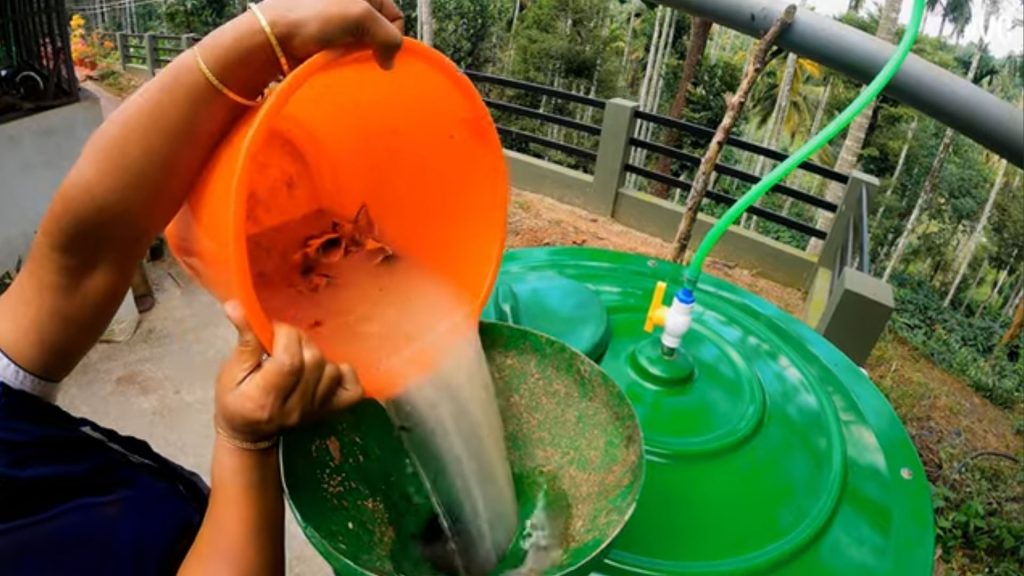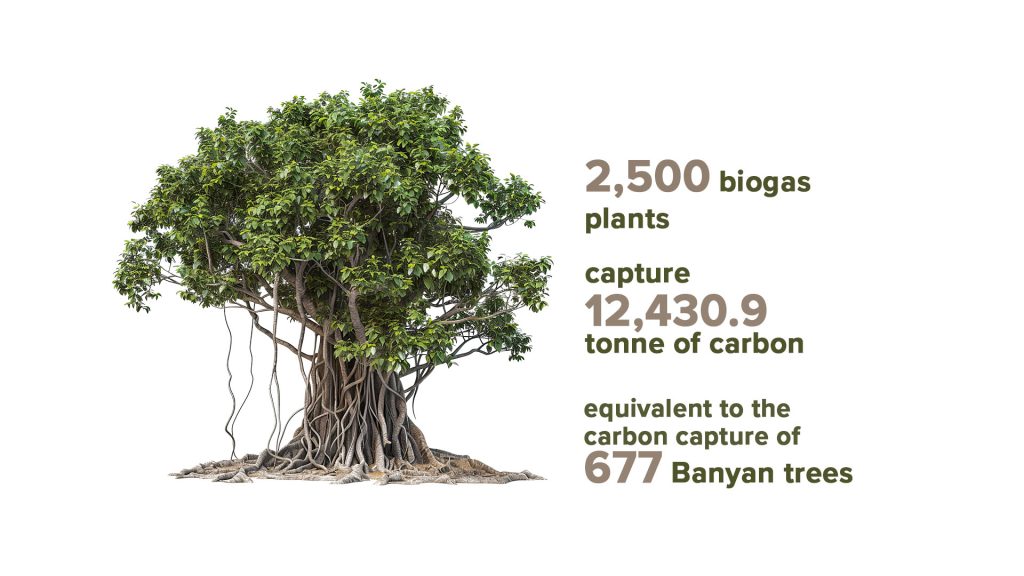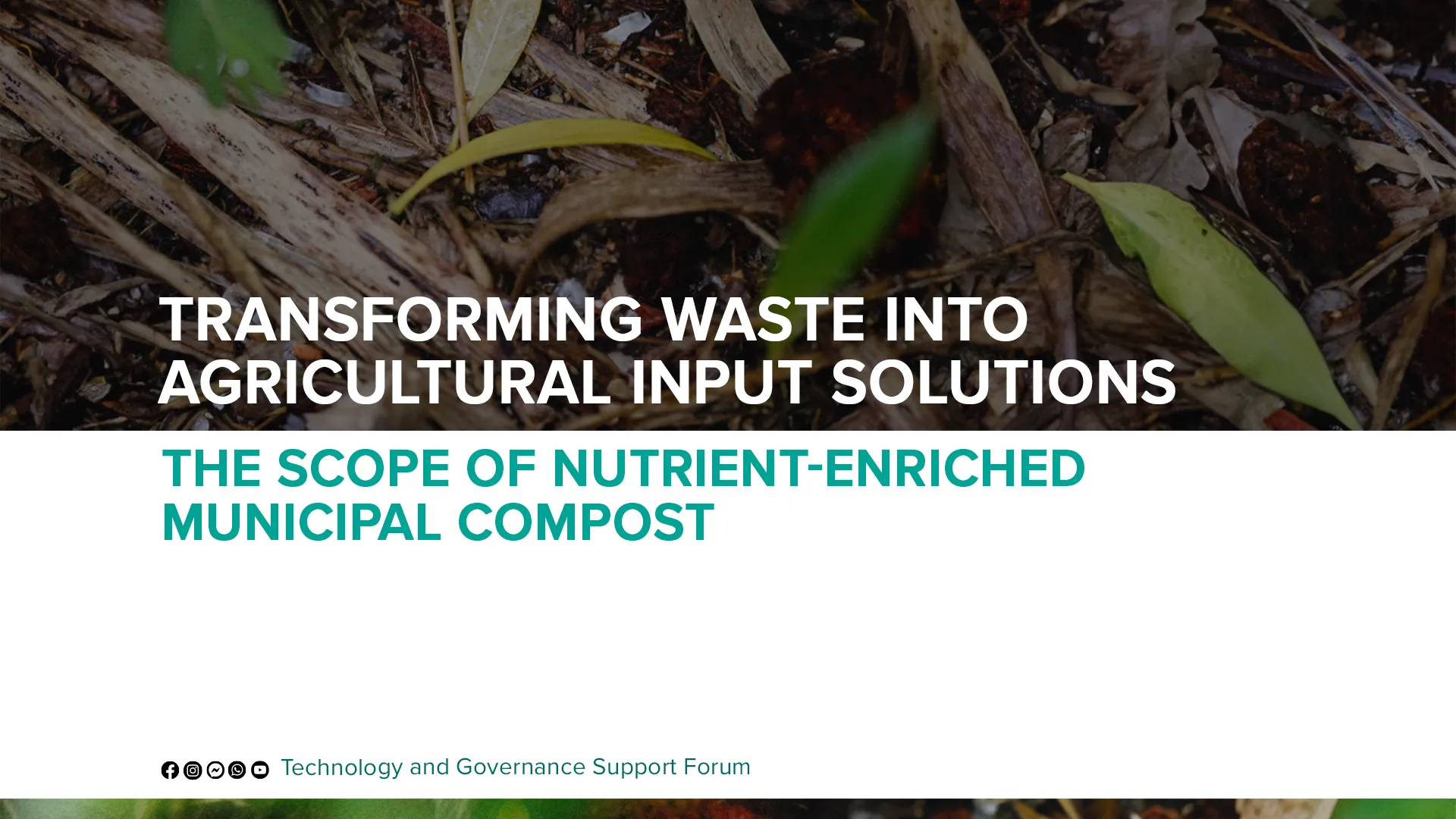Unlocking the Potential: Exploring the Wide-Range Benefits of Home Biogas Systems
Climate change and global warming represent some of the most pressing challenges of our time, with effective waste management playing a pivotal role in their mitigation. Improper disposal and management of waste significantly contribute to the emission of greenhouse gases like methane and carbon dioxide, both of which accelerate global warming. When organic waste decomposes anaerobically in landfills, it releases methane—a greenhouse gas approximately 25 times more potent than carbon dioxide. Therefore, implementing effective waste management practices is essential for maintaining environmental cleanliness, reducing greenhouse gas emissions, and combating climate change.

Alleppey, a town in Kerala, has garnered global attention for its innovative waste management efforts. Over the years, the municipality has received numerous awards and recognitions for its waste management activities. A key aspect of their approach is decentralised waste management, based on the principle of subsidiarity. One of the crucial technology options in this approach is household-level biogas plants. Compared to other local government institutions in Kerala, Alleppey municipality has distributed the highest number of biogas units—nearly 2500. However, most of these units have failed due to a lack of maintenance. In this blog, we delve deep into the scope and challenges of biogas-based solid waste management in Alleppey, examining both its potential and the obstacles it faces.
Understanding Household-Level Portable Biogas Plants
Household-level portable biogas plants are compact and movable setups designed to convert organic waste into biogas. These plants typically consist of a digester chamber where organic materials, such as kitchen waste, including food scraps and fruit and vegetable peels, are digested in the absence of oxygen. This process results in the production of biogas, primarily composed of methane and carbon dioxide, where the methane serves as a sustainable energy option for cooking.

Portable biogas plants are notable for their ease of movement and relocation. Made from FRP (Fiber-Reinforced Plastic), these plants are available in various sizes, such as 0.5M³, 0.75M³, 1M³, 2M³, and 4M³, making them convenient for household use. By utilizing these portable biogas plants, households can effectively manage organic waste while generating a renewable energy source, contributing to both waste reduction and energy sustainability.
Appropriateness of Biogas Plants in Alleppey
Biogas systems align well with Alleppey’s regional characteristics, such as high groundwater levels, heavy rainfall, and the need for efficient liquid waste management. Portable biogas plants, constructed from fibrous materials, are designed to operate under anaerobic conditions, making them resilient to high water tables and frequent heavy rains. This ensures that these biogas plants remain functional even in areas prone to waterlogging or excessive rainfall.

Additionally, the character of household waste in Alleppey typically shows a high wet content, a common feature across Kerala due to the prevalence of curries such as Sambar and Kaalan in local meals. Biogas plants can effectively address this issue, as they are capable of processing large amounts of liquid inputs. This dual functionality allows households to manage their liquid waste efficiently while also reducing the production of greywater, thereby contributing to better waste management.
Beyond economic advantages
Implementing biogas plants in Alleppey offers substantial economic and environmental advantages. If all 2,500 distributed biogas plants are operational, they can produce approximately 1,368,750 hours of biogas annually. This production can save around 7,500 LPG cylinders, which, at the current price of ₹900 per cylinder, translates to an annual saving of ₹6,750,000.
Beyond economic savings, the environmental impact is equally significant. The efficient operation of these 2,500 biogas plants could reduce the total carbon footprint by 729 tons annually. By processing 1.5 kg of food waste per household daily, these plants can handle 1,825 tons of food waste each year. This process would capture approximately 417.925 tons of methane gas annually, equivalent to 11,701.9 tons of carbon dioxide. Overall, the biogas plants could capture a total of 12,430.9 tons of carbon annually, which is comparable to preserving 677 Banyan trees for their whole lifetime.

These benefits highlight the dual advantage of biogas plants: they offer significant cost savings and contribute to substantial reductions in greenhouse gas emissions, promoting both economic efficiency and environmental sustainability.
The Need for a Maintenance Model
To ensure household-level portable biogas plants operate efficiently and last for a long time without issues, a robust maintenance model is crucial. Just as we invest in the upkeep of other household appliances, biogas plants also require regular maintenance. Given today’s busy lifestyles, managing daily maintenance tasks can be challenging. Therefore, implementing an annual maintenance contract (AMC) model is essential for the proper upkeep of these plants. With an AMC, households can ensure their biogas plants receive timely and professional maintenance, guaranteeing sustained efficiency and reliability, while also relieving homeowners of the daily maintenance burden. This model could contribute to the development of green jobs as well.
A Possibility for Small Towns
Unlike large metropolitan areas, small towns in Kerala are more suited for decentralized modes of waste management rather than large centralized facilities for bio-methanation. This approach fosters a sense of responsibility among residents and institutions, encouraging them to actively participate in waste management. It also reduces the burden on the municipality to handle all the waste generated in the town. Instead of investing in large infrastructure and sophisticated technologies that are energy and resource-intensive, smaller, decentralized approaches can be more effective.
Utilizing biogas plants to convert organic waste into renewable energy offers a sustainable alternative to fossil fuels. This method not only reduces the carbon footprint but also promotes energy self-sufficiency and economic savings. By adopting this strategy, small towns can effectively address waste management challenges while contributing to a cleaner environment and a more sustainable energy future.
Author

Vishnu A
Director, Urban Loop Technology Solutions pvt. ltd







